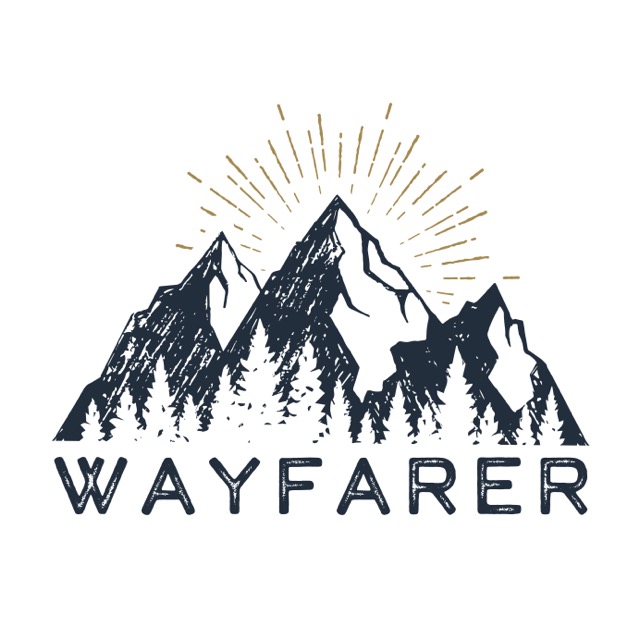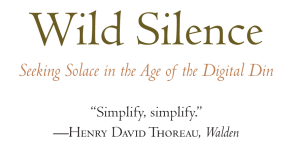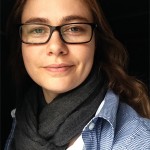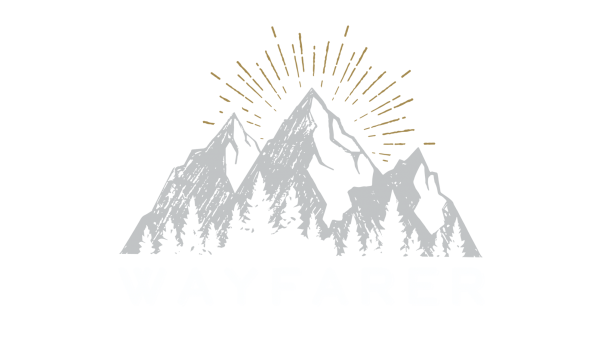Letter from the Editor by L.M. Browning
Featured in Vol.4 Issue 1 | The Spring 2015 Edition
Thoreau’s celebrated urging has become a modern necessity. Now more than ever, we must fight to preserve our consciousness, and the health of our psyche.
To survive the multi-track digital world that never ceases—never allows us a moment of rest—we must develop the ability to simplify in order to maintain physical and emotional well-being. Some aspects of our ever-hurried life must be slowed, or the pace will kill us. The wider the web, the less we stop to take in the horizon. Our mind, our body, and our spirit require that solace that stillness brings in order to regulate our mental and physical health.
When we give our focus to something, it is as though we are plugging our mind into it; we zero in and all else fades away. When we give our focus to the digital streams of work and media, we are plugging our minds into something draining, chaotic, and usually empty. And so we suffer mental fatigue after prolonged periods of overwork and overexposure to this digital world.
The cure for this mental strain is to focus on something soothing, simple, and profound. The most rejuvenating source of these restorative elements being the very world we vacated when entering the digital, and that is the still-wild places of the natural world. The tonic for an overburdened mind is to unplug from all that drains and bombards, and reconnect with the stillness and soothing cycles of nature. When you find yourself consumed in the unimportant and exhausted by the blinding pace, go unto the mountains and let the majesty bring you to a halt.
A Modern Pandemic: The Hysteria of Emptiness
We all have heard the virtues of meditation and mindfulness. We know deep within ourselves that we’re clinging to unhealthy ways, but how do we change directions?
We are hurdling forward now, seemingly unable to stop ourselves from making that next great distraction, even though we all sense the heavy importance of just sitting quiet for a time, and addressing the ever-widening holes fraying along the seams of our soul.
We are, all of us, writhing in a silent hysteria of emptiness. No, we’re not hysterical in the sense that we are sitting here sobbing and clawing at ourselves. Instead, the hysteria is a silent one, taking place as we are staring deadpan and milky-eyed into our screens; mainlining the anesthetic of our digital distractions, so afraid to face a single moment sober.
Is the hole within us insatiable? Can it be filled? Or is it simply a part of humanity’s unseen anatomy? The person who holds a curiosity for the world has an intact hope that the hole can indeed be filled. This hope is what separates the mad ones from the sane.
To begin to address the holes in our life we must recognize what drives us each day. Being aware of your driving emotions helps you to pinpoint and defuse detrimental behavior. When I was younger, I was driven by curiosity. I went to books of philosophy, religion, literature, and verse looking for experience, for truth, for moments of awe, but at some point my driving emotions changed; desperation sprang up in the place of my dying curiosity. The nature of what I sought changed as well. I began reaching for distractions. My belief in answers and expectation of transcendent experience all but lost. Strong drinks, empty relationships, screen of fruitless interaction, extra projects at work—all things unimportant that possess that momentary numbing quality became my life, when they in no way reflected the virtuous character I so painstakingly defined in my youth.
The course I took from enthusiasm to avoidance is common to many. We routinely use unhealthy coping mechanisms to deal with stress, fatigue, and hopelessness. Ignoring the fact that the nature of what we depend upon to get through the day is damaging and will only serve to bring us lower in the long run.
So where are we left—we who feel the emptiness but no longer have the fire of curiosity driving us? We can plug-in to the 24-hr media stream, and let it flow through our veins like propofol until the voice of our emptiness slurs into white noise. We can make our way across the stretching years before us by leaping from one distraction to another. If the generations before us have taught us anything it is that one can indeed spend one’s entire life in denial. Or we can take to the road and recapture what we have lost.
We can store up the energy to search as we once did—to rediscover that interest in life that lay at the heart of our curiosity. Exhaustion of the soul is different than that of the body. Sleep doesn’t restore strength to the soul nor does food; (at least, not the food we force-feed ourselves before punching a clock on a job we have no emotional stake in). What we need to recharge ourselves cannot be pinpointed; each source is specific to the individual. The search is something we each must do for ourselves.
To set out on this journey of restoration, we must first cast off as many weights as possible—toxic relations and detrimental coping mechanisms—and scale back work and digital distractions. Next, we must free ourselves to take up the search by requiring less of the material world so that we need not sell as many hours of our life to sustaining our survival. Then, with the hours we have reclaimed, we must face our fears—face the silence. We must bring ourselves to sit with the only stranger in this life that we must come to know: ourselves. Sit there without vice or distraction and just be—be until the fits of boredom pass, and we find something worth knowing in the quiet.
We must sit and have tea with ourselves, settle in a deep chair in a café nestled in a town square, watching the stream of life and change go on, remembering that we too are a part of that change. The good shall pass so savor it. The bad shall likewise pass so don’t dwell on it.
We must walk with ourselves along wooded paths soaking in the sunlight and silence through the open pores of our soul. We must fall asleep in the grass as we did when we were children allowing the warmth of the light to be our weightless blanket. We must travel and invigorate our senses—see the world from new angles, and shake off the fear of the unknown that comes with staying in too small a sphere for too long a time. We must stay home, and cook ourselves a meal from scratch. Sit down with a plate of ripened fruit and bread we kneaded with our hands and remember what it is to savor a moment in time. We must book a ticket on a train, sit by the window, and watch the landscape roll by—flat at first then rising up to the peaked mountains and sinking back down to the white-capped sea—and remember that the destination isn’t important, it’s the journey that is the gift. We are all going to the same place; it’s how we choose to get there that defines the life we lead.
—L.M. Browning
Connecticut, Winter 2015
L.M. Browning grew up in a small fishing village in Connecticut. A longtime student of religion, nature, art, and philosophy these themes permeate her work. Browning is the author of numerous award-winning titles. In 2010, she debuted as a writer with a three-title contemplative poetry series: Ruminations at Twilight, Oak Wise, and The Barren Plain. These three books went on to garner several accolades including a total of 3 pushcart-prize nominations and the Nautilus Gold Medal for Poetry in 2013. She followed this success with her first novel, The Nameless Man. In 2013 Her title, Fleeting Moments of Fierce Clarity: Journal of a New England Poet, was named a finalist in the Next Generation Indie Book Awards (Best Regional Non-fiction) and was nominated for a Pushcart Prize. Balancing her passion for writing with her love of education and publishing, Browning is a graduate of the University of London and a Fellow with the League of Conservationist Writers. She is partner at Hiraeth Press; Co-Founder of Written River as well as Founder and Editor-in-Chief of The Wayfarer. In 2011, Browning opened Homebound Publications—a rising independent publishing house. She is currently working on her B.A. at Harvard University’s Extension School in Cambridge, Massachusetts. To learn more go to www.lmbrowning.com



